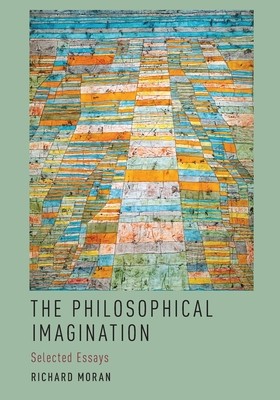
- We will send in 10–14 business days.
- Author: Richard Moran
- Publisher: Oxford University Press, USA
- ISBN-10: 0197521118
- ISBN-13: 9780197521113
- Format: 17.3 x 24.4 x 2.3 cm, minkšti viršeliai
- Language: English
- SAVE -10% with code: EXTRA
Reviews
Description
The Philosophical Imagination brings together several of Richard Moran's essays, ranging over a remarkable variety of topics in philosophy of mind and action, aesthetics, and moral psychology. A theme connecting several of the essays is the different ways our capacity for imagination is drawn on in our responsiveness to art, to literature, to the lives of other persons, and in the practice of philosophy itself. Topics explored here include our emotional responses to mimetic works of art, the nature of metaphor as a vehicle of thought and in the work of rhetoric, and the understanding of the concept of beauty, as that is developed in contrasting ways in the work of Immanuel Kant and Marcel Proust. Several of the essays respond to the work of recent and contemporary philosophers such as Bernard Williams, Stanley Cavell, Harry Frankfurt, and Iris Murdoch, in the context of such themes as the philosophical problem of 'other minds', love and practical reason, the legacy of Sartrean existentialism, and the role of history in the disciplinary self-understanding of philosophy. The final group of essays focuses on questions about self-knowledge and the importance of thefirst-person perspective, developing ideas from Moran's influential book Authority and Estrangement (Princeton 2001). Topics discussed here include the nature of a person's 'practical knowledge' of her own action, the concept of the mental and the differences between self-understanding and the understanding of others, and the ambiguous role of narrative as a form of self-understanding. Throughout there is an attempt to draw out the connections between topics that are often discussed in isolation from each other, and to pursue them in the context of the recognizable human situations and questions which ground them. The essays are written in a vivid, humane, and accessible style which should attract a broad readership, both inside and outside the academic discipline of philosophy.
EXTRA 10 % discount with code: EXTRA
The promotion ends in 21d.12:42:27
The discount code is valid when purchasing from 10 €. Discounts do not stack.
- Author: Richard Moran
- Publisher: Oxford University Press, USA
- ISBN-10: 0197521118
- ISBN-13: 9780197521113
- Format: 17.3 x 24.4 x 2.3 cm, minkšti viršeliai
- Language: English English
first-person perspective, developing ideas from Moran's influential book Authority and Estrangement (Princeton 2001). Topics discussed here include the nature of a person's 'practical knowledge' of her own action, the concept of the mental and the differences between self-understanding and the understanding of others, and the ambiguous role of narrative as a form of self-understanding. Throughout there is an attempt to draw out the connections between topics that are often discussed in isolation from each other, and to pursue them in the context of the recognizable human situations and questions which ground them. The essays are written in a vivid, humane, and accessible style which should attract a broad readership, both inside and outside the academic discipline of philosophy.


Reviews